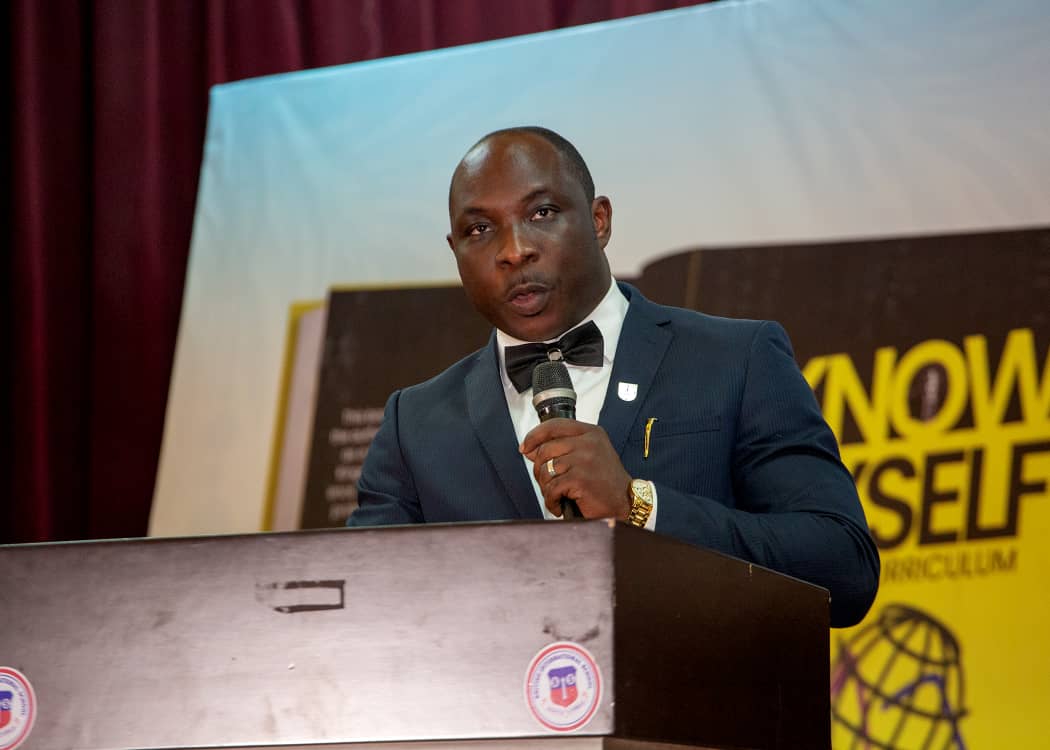Madam Chairperson,invited guests, all protocols observed.
I want to first of all express my gratitude to Mr.Franklin Adjetey, the brain behind this much needed exposition and manual. The importance of the appreciation of oneself or self-awareness cannot be overemphasized. It is with this understanding that I deem it a privilege to be given the opportunity to have a say on this book: KNOW THYSELF.
I want to commend the writers of this book for the excellent job they have done in providing a guide to readers on how to explore and have a better understanding of themselves. In his book Emotional Intelligence, Daniel Goleman describes knowing oneself as “an ongoing attention to one’s internal states.” It is the ability to see how your emotions and perceptions are influencing your thinking and behavior. This is important because, all things being equal, more people are undone by behavioral issues than by anything else. Our behavior is a reflection of our thoughts. Yet very few people stop and think about what they think, how they think, and hence why they do what they do.
Madam Chairperson, as difficult as it is to take an honest look at ourselves, most of us lack a healthy self-knowledge simply because we do not make the time for introspection. Our technology-driven lives do not lend themselves to stopping and reflecting on our behavior or our thinking. Without reflection, however, we never learn the strengths we can leverage or the weaknesses we have to manage. We tend to live our lives on autopilot, reacting habitually to every situation we find ourselves in.
Ladies and Gentlemen, at one time or another we have all no doubt asked ourselves, “Why is this happening to me?” “Why do I keep having the same problems?” “Why am I so frustrated?” These difficult but important questions nudge us closer to a better understanding of ourselves and others. If they go unanswered, we become stuck in a cycle, continually repeating the past and forever on the defensive. Taking control of our lives requires that we find the answers.
Indeed, when Thales of Miletus, one of the sages of ancient Greece, was asked, “What is difficult?” he is said to have replied, “To know yourself.” Though the importance of self-knowledge—self-awareness—cannot be understated, “it is still,” writes leadership expert Warren Bennis, “the most difficult task any of us faces. But until you know yourself, strengths and weaknesses, you cannot
succeed in any but the most superficial sense of the word.” Many people have a hard time looking at themselves in the mirror and dealing with the ravages of time. Fortunately, we can be grateful to the mirror for showing us only our external appearance.
Madam Chairperson , I wish to state that, as demonstrated in this book, self-introspection is a learnable skill that with some direction, time and effort we can get better at. It’s not an all-or-nothing proposition but a continuum—an ongoing process that we engage in throughout life. The choice before us is how far along that continuum we are willing to go. Unfortunately most of us are too easily satisfied and quit too soon; we have default ways of thinking that help us to preserve the status quo because that’s where we’re most comfortable. This is how we get in the way of our own growth and happiness.
It should be said that self-awareness is not just about coming to terms with our weaknesses. It also identifies our strengths and what is working for us. It encourages us to do more of the same and develop mastery in those areas where we naturally excel.
On that note, I wish to end here and encourage all of us to, as a matter of necessity, get a copy of this book for ourselves, families and loved ones. I believe that with that single act, we would be aiding their development and success.
-Thank you.-
RICHARD OSEI-OWUSU

